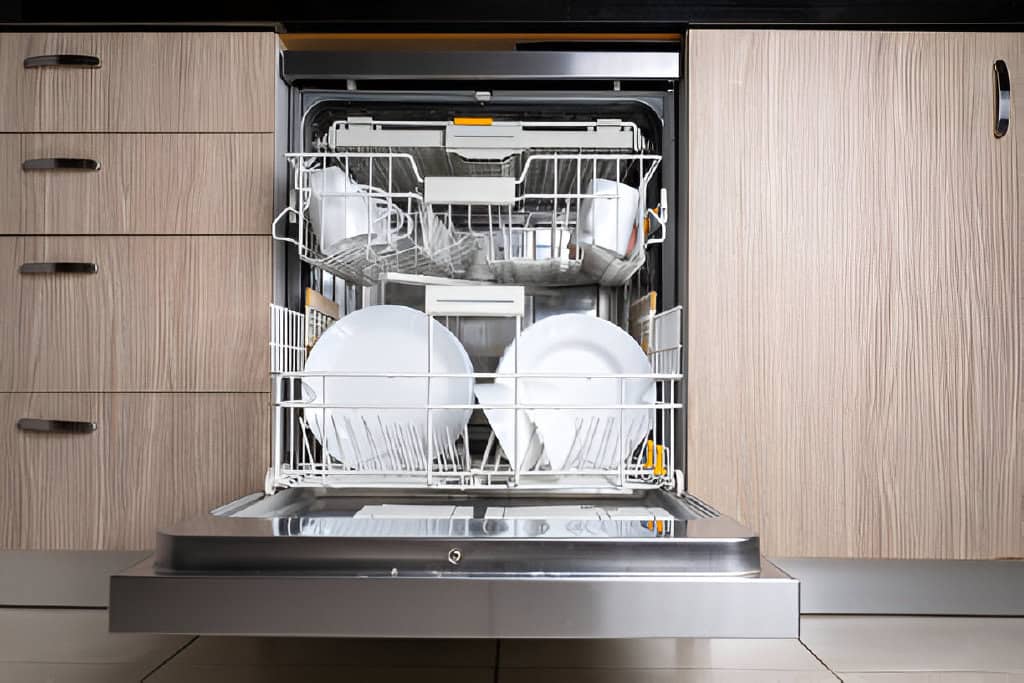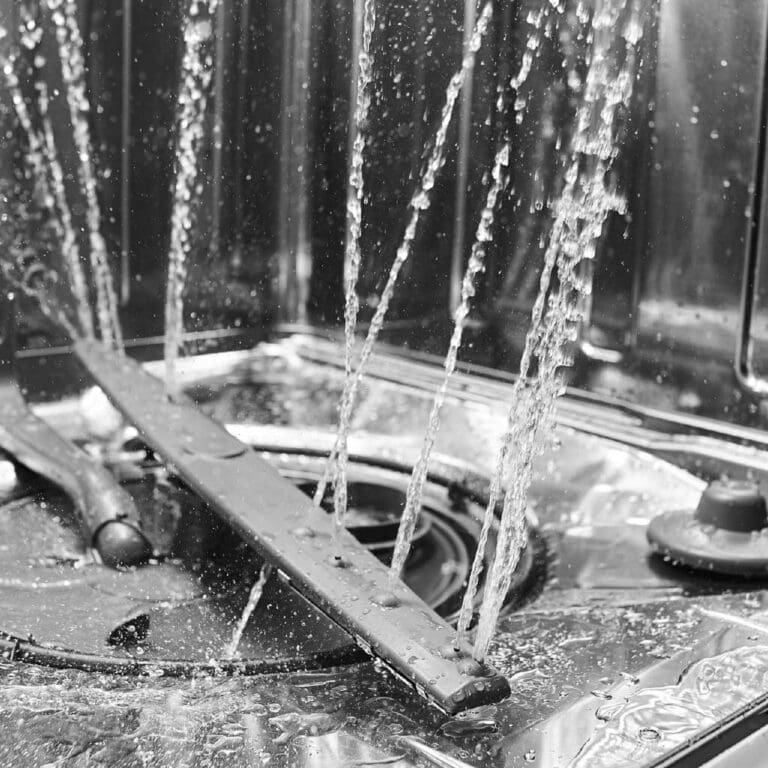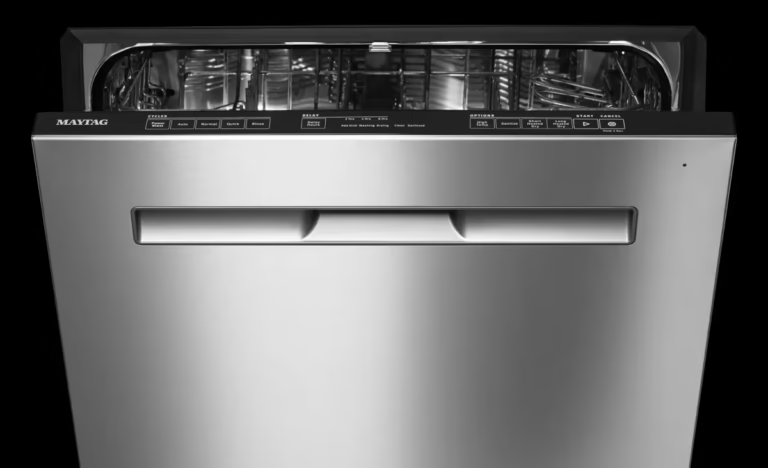Does an Empty Dishwasher Cycle Really Clean? Debunking the Myths
I’ll admit it: I used to be skeptical about running an empty dishwasher cycle. I mean, how could an empty machine clean itself? But over time, and with a little digging, I uncovered the truth behind this household mystery.
Let’s dive into the nitty-gritty and debunk some myths about whether an empty dishwasher cycle really cleans.
The Skepticism Behind Empty Dishwasher Cycles
We’ve all heard the phrase “clean as a whistle,” but when it comes to dishwashers, this idiom often leaves us scratching our heads. How can a machine that cleans other things get dirty? Well, believe it or not, dishwashers do need to clean themselves. Food particles, grease, and soap scum can build up over time, leading to a less efficient appliance.
Myth #1: Dishwashers Don’t Need Cleaning
I used to think my dishwasher was a self-cleaning wonder. After all, it’s constantly filled with soapy water, right? Wrong! Residue builds up in those hidden nooks and crannies, like the filter, spray arms, and the door seal. This grime can eventually lead to odors and even mold if not addressed.
Myth #2: Running an Empty Cycle is a Waste of Resources
Sure, running an empty cycle might seem like you’re throwing money down the drain, but it’s actually quite the opposite. A well-maintained dishwasher runs more efficiently, saving you money in the long run. Also, many modern dishwashers have an eco-friendly cycle to clean the machine.
Why an Empty Dishwasher Cycle Works
Running an empty cycle with the right cleaning agents can do wonders for your dishwasher’s health. Here’s how I keep my dishwasher in tip-top shape:
- Use White Vinegar: Pour a cup of white vinegar into a dishwasher-safe bowl and place it on the top rack. The vinegar helps break down grease and grime.
- Baking Soda Magic: Sprinkle a cup of baking soda on the bottom of the dishwasher. This helps eliminate odors and scrub away stains.
- Hot Water Cycle: Run the dishwasher on the hottest cycle. The combination of heat, vinegar, and baking soda creates a powerful cleaning solution.
The Science Behind It
Let’s break down the science. White vinegar contains acetic acid, which dissolves mineral deposits, grease, and grime. Baking soda, a mild alkali, helps dislodge dirt and neutralizes odors. When combined with hot water, these agents work together to sanitize and refresh your dishwasher.
Also read: How to Get an Energy Credit for Your Dishwasher
Personal Experience: A Clean Dishwasher, Happy Life

A few months ago, I noticed my dishes weren’t coming out as sparkling as they used to. They had a slight film and sometimes even a funky smell. I decided to give the empty cycle a shot, following the vinegar and baking soda routine. The difference was night and day! My dishwasher smelled fresh, and my dishes came out gleaming.
Benefits of Regular Maintenance
Regular maintenance of your dishwasher goes beyond just running an empty cycle. Here are a few tips I follow to keep things running smoothly:
1. Clean the Filter
Remove the dishwasher filter and rinse it under hot water. Use a soft brush to scrub away any food particles.
2. Wipe Down the Door Seal
Gently clean the door seal with a damp cloth to remove any gunk or mold.
3. Inspect the Spray Arms
Check the spray arms for any clogs. Use a toothpick to clear out any debris.
4. Use a Dishwasher Cleaner
Every few months, run an empty cycle with a dishwasher cleaner for a deep clean.
Table: Quick Maintenance Checklist
| Task | Frequency |
| Clean the filter | Monthly |
| Wipe down the door seal | Monthly |
| Inspect the spray arms | Monthly |
| Run empty cycle with vinegar and baking soda | Bi-monthly |
| Use dishwasher cleaner | Every 3 months |
Busting More Myths
Myth #3: Any Cleaning Agent Will Do
Not all cleaning agents are created equal. Avoid using bleach or harsh chemicals as they can damage the dishwasher’s interior and harm rubber seals. Use natural cleaners like vinegar and baking soda. Or, use products made for dishwashers.
Myth #4: It’s Okay to Ignore Strange Odors
If your dishwasher smells funky, it’s crying out for a clean. Ignoring these odors can lead to mold and mildew, affecting the cleanliness of your dishes. Trust your nose—if it smells off, it’s time to run an empty cycle.
| Read: Will Your Washing Machine Drain If You Turn It Off? |
Alternatives to Running an Empty Cycle Dishwasher to Clean It
Instead of running an empty cycle, there are more effective and eco-friendly ways to clean your dishwasher. One popular method is the vinegar rinse. Simply place a cup of white vinegar in a dishwasher-safe container on the top rack and run a hot water cycle. This helps break down grease and remove odors.
Alternatively, you can use baking soda by sprinkling a cup on the bottom of the dishwasher and running a short cycle. This will freshen and brighten the interior.
For a deeper clean, consider using actual dirty dishes. This method allows you to clean the dishwasher while simultaneously washing your dishes. First, fill the bottom rack with dirty plates and utensils. Then, place a dishwasher-safe container of vinegar on the top rack. Run a hot cycle to clean both the dishwasher and the dishes.
Another option is to use a dishwasher cleaner specifically designed for this purpose. These cleaners are available in stores and can be used monthly to keep your appliances in top shape. Simply follow the instructions on the package for the best results.
Final Thoughts: The Proof is in the Pudding
In conclusion, running an empty dishwasher cycle really does clean your machine. By busting these myths and knowing the science, I’ve improved my dishwasher’s performance and lifespan. It’s like giving your dishwasher a spa day—it comes out refreshed and ready to tackle even the greasiest lasagna pans.
So next time you’re skeptical about running an empty cycle, remember: a clean dishwasher leads to cleaner dishes and a happier kitchen. Embrace the process, and let your dishwasher shine like the star it is.





